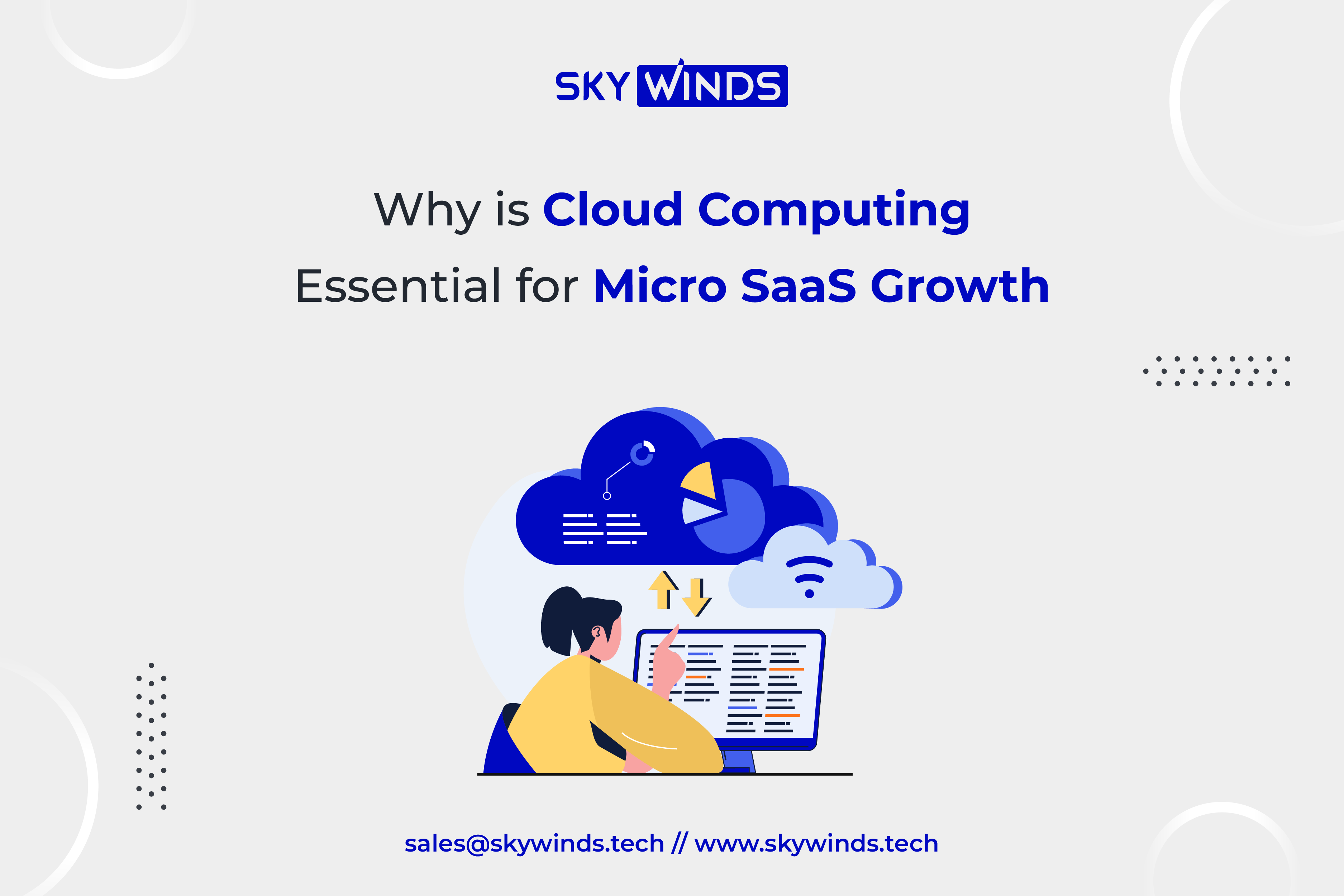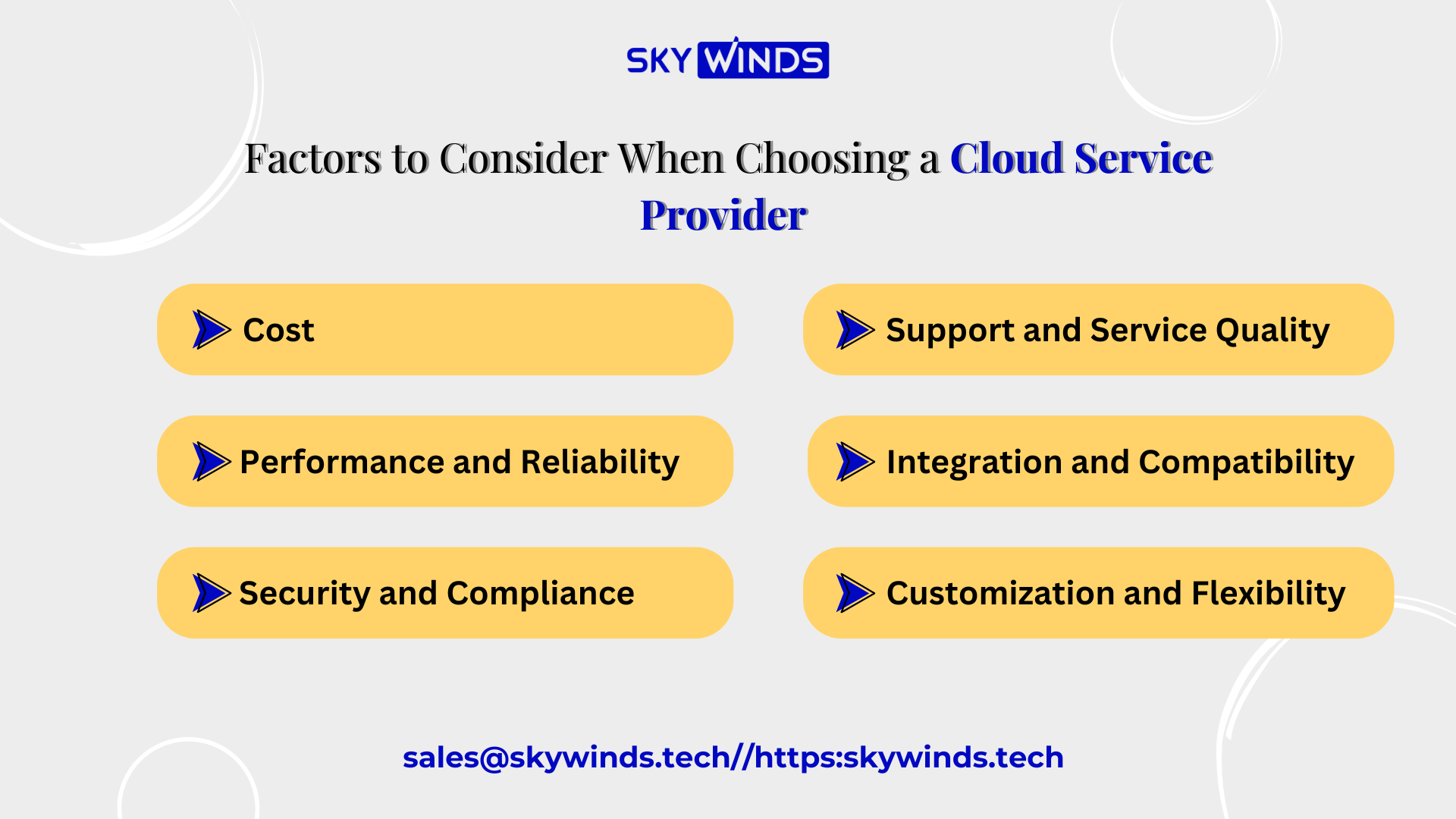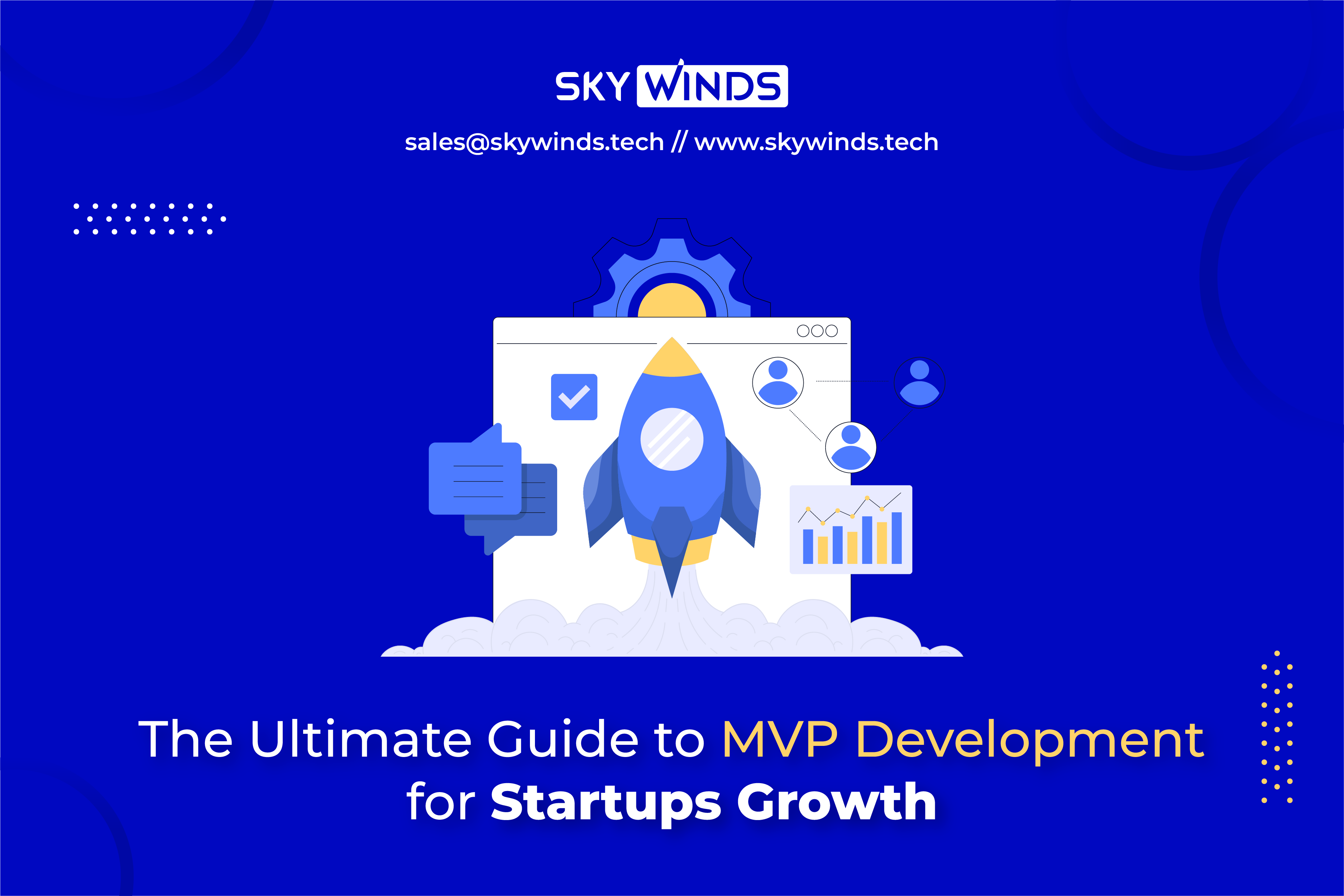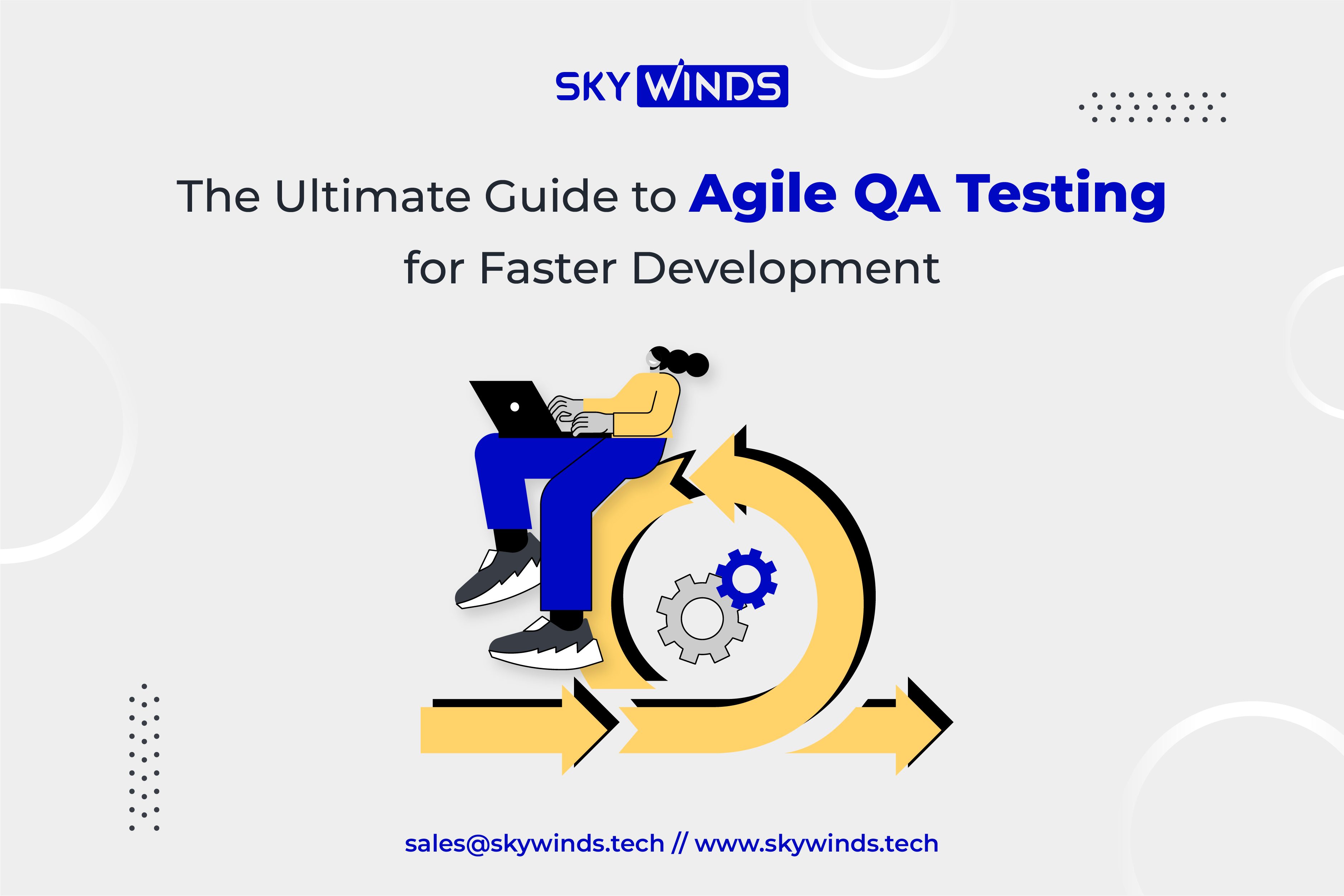
Micro SaaS businesses have grown incredibly in the last few years. These small-scale Software as a Service (SaaS) providers target specialized markets and provide accurate and effective solutions to certain issues. Cloud computing is not a choice for many businesses—it is a requirement. It benefits the micro SaaS businesses by providing added security, advanced tools, and cost management.
This comprehensive blog will explain the reasons behind the necessity of Cloud computing for SaaS businesses, its benefits, and how it can enhance Micro SaaS businesses’ efficiency and productivity. So, let’s dive into the details:
Benefits of Cloud Computing for Micro SaaS
Let’s discuss the core benefits of utilizing cloud computing for micro SaaS Businesses and how it helps these businesses in the long run:
- Scalability
Growth is key for small SaaS businesses, and cloud computing allows companies to expand and scale operations according to business needs. Some examples of popular businesses include Amazon, Microsoft, and Google cloud computing, these offer platforms that let businesses scale their online operations.
When user traffic is low, businesses don’t have to pay for unused resources. Meanwhile, during busy times, they can add more. This cost-effective tactic is perfect for smaller businesses with changing demands.
- Security
Storing data in the cloud is often safer than doing it alone. This is because SaaS security in cloud computing is usually more than a small business needs. Encryption is strong, protecting at rest’ and ‘on the move’ data. Security upgrades occur regularly, combating new risks.
For micro SaaS businesses, leveraging the security infrastructure of cloud providers can significantly reduce the risk of data breaches and cyber-attacks.
- Cost Management
Micro SaaS businesses need effective cost management and sustainability because cost is the biggest concern for small businesses. With cloud computing, businesses only need to pay for what they are actually using. This “pay-as-you-go” setup means no need for big money upfront in hardware. Plus, upkeep costs go down too. Also, these online services make clear bills and show how you’ve used resources, helping businesses keep tabs on spending.
This kind of cost management helps small SaaS cost management better. They can use their funds for growth and new ideas without heavy infrastructure costs weighing them down.
- Collaboration Tools
Cloud computing allows SaaS businesses to leverage many collaborative tools to facilitate seamless teamwork and networking. Google Cloud platform and other platforms like Microsoft 365 provide real-time collaboration features that make it easier for the whole team to work together on documents, spreadsheets, and presentations from any location. This also makes the data accessible 24/7 with added SaaS security solutions that can only be accessed by authorized parties.
This promotes remote work by helping teams communicate and collaborate much better. Trello, Asana, and Slack link with cloud services to automate and boost productivity. These collaboration solutions help smaller SaaS companies innovate, streamline operations, and align team members regardless of location.
See More: Unlocking 2024’s Best Micro SaaS Startup Ideas For Tech Entrepreneurs
Market Growth and Trends of Cloud Computing for SaaS
The worldwide cloud computing marketplace length changed to USD 602.31 billion in 2023 and is predicted to grow at a compound annual growth rate (CAGR) of 21.2% from 2024 to 2030. This fast growth underscores the critical role that cloud computing performs within the contemporary enterprise surroundings. The marketplace enlargement is pushed by using the growing reliance on cloud-based total solutions for operational performance, scalability, and effectiveness.
In the SaaS segment, cease-person spending is set to witness a full-size increase. In 2023, spending on cloud utility services (SaaS) is projected to attain $167.342 billion. This determination is predicted to upward push to $197.288 billion in 2024 and improve to $232.296 billion by 2025. These statistics imply a robust call for SaaS solutions as corporations continue to migrate their programs to the cloud to leverage its several blessings.
How does Cloud Computing for SaaS Offer Efficiency and Productivity?
Cloud computing boosts productivity and efficiency by reducing the IT infrastructure management time and effort, allowing SaaS businesses to focus more on innovation and expansion. Micro SaaS enterprises can outsource server maintenance, software upgrades, and security patches to cloud providers. Internal teams might focus on product development, customer service, and marketing.
It also helps Micro SaaS businesses automate some of their crucial repetitive tasks while making the process faster, error-free, and timely. Its CI/CD pipelines automate code testing and deployment, ensuring fast and reliable updates.
Demand-based scalable resources are available in cloud computing. This scalability lets smaller SaaS businesses handle peak demands without affecting performance or user experience. Automatically provision more resources during high demand and scale back during slow demand to save money.
Finally, cloud-based collaboration solutions improve productivity by streamlining team communication and coordination. These solutions enable remote work and transnational teams, which are becoming more common in business. Real-time collaboration lets teams operate efficiently regardless of location.
Examples and Emerging Trends in Cloud Computing Promoting Efficiency and Productivity
Several cloud-based gear and offerings can notably decorate performance and productiveness for micro SaaS agencies:
- Continuous Integration/Continuous Deployment (CI/CD) Pipelines: Tools like Jenkins, CircleCI, and GitHub Actions automate constructing, checking out, and deploying code. This equipment enables fast and reliable software shipping, decreasing the time it takes to convey new features and updates to the marketplace.
- Cloud Storage and Data Management: Services like AWS cloud computing, Google cloud computing, and Azure cloud technologies offer scalable and steady storage answers. These services permit micro SaaS businesses to successfully store and control massive volumes of statistics with integrated redundancy and data protection capabilities.
- Monitoring and Analytics: Tools like Datadog, New Relic, and AWS CloudWatch offer real-time tracking and analytics talents. These tools help groups tune the overall performance of their packages, identify and remedy troubles quickly, and advantage insights into user conduct and system fitness.
- Collaboration and Communication: Platforms like Google Workspace, Microsoft 365, and Slack provide collaboration and communique equipment. These platforms aid real-time record-enhancing, video conferencing, on-the-spot messaging, and assignment management, enabling teams to paint together seamlessly and stay aligned on desires and obligations.
- Infrastructure as Code (IaC): Tools like Terraform, Ansible, and AWS CloudFormation permit groups to manage and provision their infrastructure through code. This technique ensures that infrastructure adjustments are repeatable, model-managed, and without problems deployable, reducing the risk of configuration go with the flow and guide errors.
- Serverless Computing: Services like AWS Lambda, Google Cloud Functions, and Azure Functions enable companies to run code without provisioning or handling servers. Serverless computing allows developers to focus on writing code even as the cloud company handles the infrastructure, scaling, and protection. This ends in faster improvement cycles and reduced operational overhead.
By leveraging these gear and offerings, micro SaaS companies can improve efficiency and productivity, ultimately driving growth and fulfillment. Cloud computing affords the ability, scalability, and automation needed to streamline operations and supply brilliant services to clients.
See Also: What’s the Future of Micro SaaS? Key Insights and Expert Predictions
Factors to Consider When Choosing a Cloud Service Provider
Choosing the right and suitable cloud service provider matters a lot for Micro SaaS businesses because it can affect operational efficiency, security, and success. Key factors and criteria that must be taken into consideration are listed below:

- Cost
Micro SaaS businesses are always concerned about budgets and extreme costs. Choosing a partner that offers suitable services at good rates is always recommended. Compare provider pricing models and pick one that fits your budget and usage. Consider the whole cost of ownership, including data transfer, storage, and additional service fees, and look for transparent pricing. Many suppliers offer cost management systems to track and optimize spending, which can benefit small businesses.
- Performance and Reliability
Always consider checking the infrastructure performance of the cloud computing service provider because features may attract you. Still, it can be useless if it does not integrate with your system. Find providers with a good reputation for uptime and availability. Consider their SLAs that guarantee uptime rates. Data center supplier with a global presence can ensure minimal latency, and better performance. It is recommended to look for their past clients, check reviews, and access user feedback.
- Security and Compliance
Security is paramount for SaaS businesses dealing with sensitive information. Ensure the provider offers robust safety features, including statistics encryption, firewall safety, identification and right of entry to management (IAM), and everyday protection audits. Additionally, confirm that the company complies with applicable industry standards and policies and GDPR, HIPAA, or SOC 2. This compliance ensures that your records are treated securely and according to prison necessities.
- Support and Service Quality
Consider the extent of customer support provided with the support of the cloud service company. Reliable customer support is important for resolving problems directly and minimizing downtime. Evaluate the company’s support options, which include availability (24/7 support is ideal), response times, and guide channels (for example., phone, email, and instant chat). Additionally, look for partners that provide complete documentation, training sources, and a strong community to help with troubleshooting and pleasant practices.
- Integration and Compatibility
Ensure the cloud provider’s services are well-suited to your existing system, technologies, and workflows. Look for vendors that offer various integrations with famous software programs and development gear. Compatibility, along with your cutting-edge infrastructure and future technological plans, will reduce disruptions and streamline the migration process.
- Customization and Flexibility
Evaluate the level of customization and flexibility the provider gives. This includes the capacity to tailor offerings and configurations to fulfill your needs. Customizable solutions can align with your business requirements and provide a seamless consumer experience.
By carefully considering these factors and choosing a provider like Skywinds, micro SaaS businesses can optimize their cloud strategy, ensuring efficient, secure, and scalable operations.
The End Note
Cloud computing in Micro SaaS businesses has a bright future, allowing them to improve their scalability, security, and operational efficiency. Emerging trends in cloud computing, like (CI/CD) Pipelines, Monitoring and Analytics, and data management, will further drive innovation and provide micro SaaS companies with advanced tools and technologies to stay competitive.
Micro SaaS businesses may maximize cloud computing efficiency, productivity, and creativity with Skywinds. Skywinds continues to provide the tools and support micro SaaS enterprises need to survive in a shifting digital ecosystem as the market grows and new trends develop.
So, reach us today for any query regarding the potential of cloud computing for improving your business growth.


